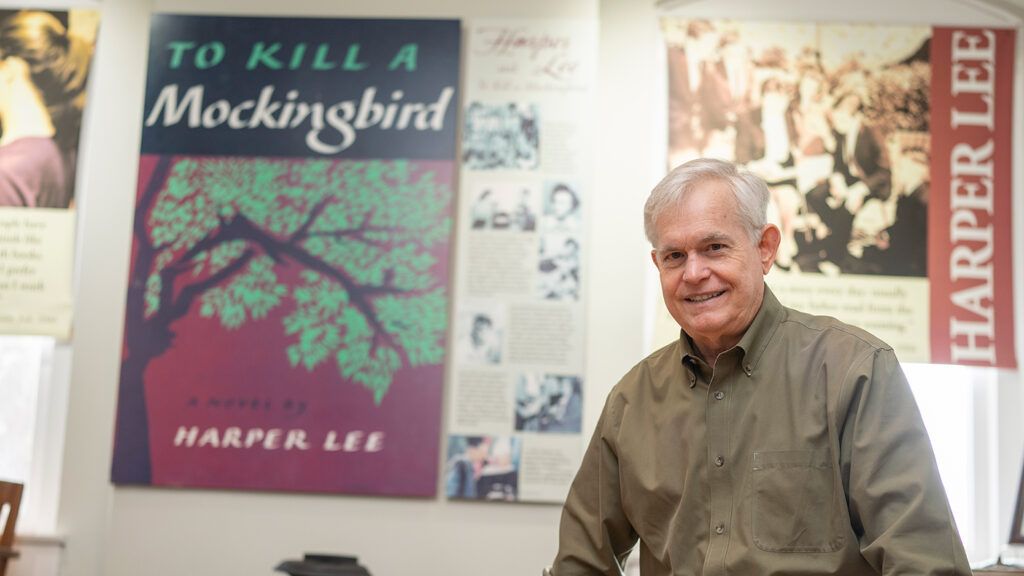I’ve lived in Alabama and loved books my entire life. As an English teacher, I showed my students the joys of literature, including To Kill a Mockingbird, by Alabama’s own Harper Lee. Somehow, though, I’d never visited Lee’s hometown of Monroeville (population: 5,900), known as the state’s literary capital.
Lee modeled the book’s setting on Monroeville. A reproduction of its courtroom appears in the 1962 film. Today the old courthouse is a museum. Standing inside, I could imagine Gregory Peck, as lawyer Atticus Finch, the father of protagonist Scout, trying to clear the name of an innocent Black man before an all-white jury. Local historian Rabun Williams pointed out the courtroom’s unusual feature: The person testifying sat in front of the judicial bench, with their back to the judge.
Outside is Scout’s neighborhood: Sets for the annual spring production of To Kill a Mockingbird, starring the townspeople, stay up year-round. Director Carly Jo Martens played Scout at the age of 10. “I love seeing what my neighbors bring to the roles,” she says. “They really get to know and understand these characters on a deep level.”
I met World War II veteran George Thomas Jones, who still writes a column for The Monroe Journal. The 99-year-old was a contemporary of both Lee and writer Truman Capote, her friend and neighbor. We talked about Nelle (Lee’s first name) and her father, for whom Jones used to caddy as a teen.
Back then, the town churches had weeklong summer revivals. Each day, his church, First Baptist, would hold one service at night and one at 10 a.m. “Every store on the town square closed from ten to eleven to show reverence,” he says.
Monroeville still has faith at its core. Charles Andrews, the first Black mayor, is a deacon at Antioch Baptist Church #3. “My father passed when I was five,” he says. “The men in the church mentored me.” Andrews returned to town after years as a state trooper and ran for office. “I prayed, ‘Lord, if this is for me, please give me the knowledge and wisdom to make the right decisions to benefit this community,’” he recalls.
There’s much more about Monroeville to love. The library was once the LaSalle Hotel, where Gregory Peck stayed while researching his role. Outdoor sculptures and murals by area artists beckon. After a stroll, why not refuel with Southern catfish or barbecue? David’s Catfish House and Big D’s Butts ’N Stuff are just a short hop from downtown.
At Cole’s, a coffee and ice cream shop, I chatted with resident Stephanie Rogers. “In To Kill a Mockingbird, Miss Nelle says that ‘neighbors bring food with death and flowers with sickness and little things in between,’” she told me. “I love that line because it is still so very much a part of our lives today.”
For more inspiring stories, subscribe to Guideposts magazine.






